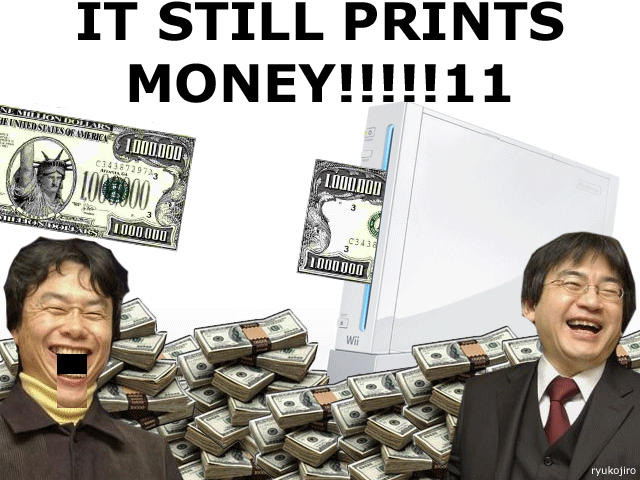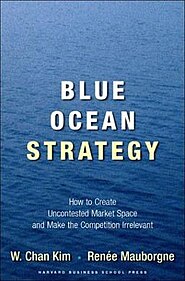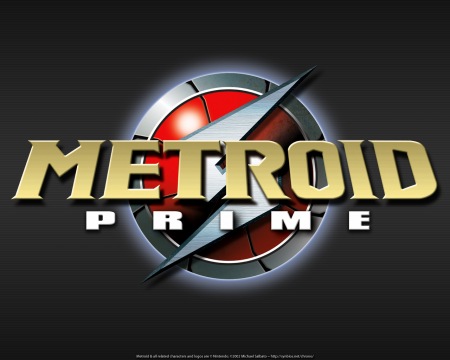Growing up with video games has been an interesting
experience for me. I started out with a
Super Nintendo and Donkey Kong Country when I was five, and was absolutely
crazy about playing games until the 15 to 16 age range. At that point, I started getting into online
gaming forums, and split my time pretty evenly between talking about games and
playing them. Around college, that
shifted more to talking about games in general and listening in on other
people’s opinions about games.
It’s an interesting experience to talk about games when
you’re a gamer. There’s a lot of sentimental attachment to it because the
subject is so intimately tied with your childhood experiences. For many of us, describing what games are
good to play, why they’re good to play, and what it is to be a gamer are all
very intimately tied in with a part of our personal identity. We have a personal stake in these discussions
because these discussions are about things that we grew up with.
It’s typical that we expect non-gamers to have
misconceptions and biases about gaming, but it’s also important to remember
that such personal stakes also make gamers very biased. I’ve spent a lot of my past blog posts trying
to pick out the little twists and inconsistencies in perceptions of gaming,
within the gaming community. It’s a bit
atypical; gamers have had to deal with lots of bias and criticism from
authority figures and from people who’ve never really been into games, but
rarely does one of our own speak out against us.
Is this so healthy, though?
Some statements are uncomfortable to hear upon first exposure, but these
statements ultimately help us grow.
Being challenged by an opposing viewpoint is the essence of personal
growth. Though the final statement may
not necessarily be the prettiest, the logic behind the statement is not
necessarily so foreign.
In this blog post, I want to take the time to share some of
other people’s thoughts and opinions that I’ve followed that have helped shape
how I see gaming today. Some of the
content is going to be a bit dated, and it’s not even a guarantee that I’ll
agree with the links and videos that I post.
I’ll provide context where appropriate.
I hope you’ll find these people’s stuff as interesting as I did.
Surprise! I'm completely unoriginal!
The current generation of video game consoles began between
late 2005 to late 2006, when the Xbox 360, Playstation 3, and the Nintendo Wii
were released. The discussion during
this transitory period was primarily focused on hardware, and from most gamers’
perspectives it seemed that the Xbox 360 and the Playstation 3 would be the
primary contenders in the corporate battle for dominance of the gamer market.
And then the Wii came out of nowhere and sold more units
than both of them.
Nintendo's goal for the fiscal year was to get itself in as many memes as possible. Probably.
Nintendo was doing something that people seemed to overlook
in the preliminary discussion: they advertised their game console to a
demographic that didn’t entirely consist of gamers. It reflected on the Wii’s gaming library,
which had as large of a selection as other consoles, but far fewer games that
self-proclaimed gamers at the time were interested in.
A new dichotomy was established: the hardcore gamer and the
casual gamer. On the surface level of
these discussions, hardcore gamer meant the kind of gamer who played games that
were traditionally played by gamers – the kind of gamers interested in the next
Final Fantasy, the next Halo, the next Zelda, the next World of Warcraft
expansion, et cetera. Casual gamer
referred to this new demographic of gamer who played Bejeweled, Wii Play, and
the other game novelties on the Wii that seemed like foreign entries in the
eyes of most seasoned gamers.
Seeing as these discussions tended to happen on online
gaming forums, the discussion was typically very one-sided. The so-called hardcore gamers saw their
domain of gaming threatened by the new wave of casual games. To the hardcore gamer, it was the casual
gamer who gave businesses incentive to make games that were fundamentally worse
for gaming, they would argue. It was the
casual gamer that stood in the way of getting the next installments of their
favorite franchises. It was Nintendo who
stood at the center of this scourge of gaming, pandering to a casual
demographic with gimmicks and shovelware.
And then, in mid-2008, a man named Sean Malstrom wrote an
article whose argument completely ruined their shit. The article isn’t formally hosted by an
online site anymore, but you can find it archived here (and, if that particular wayback machine date doesn't work, just click around other dates until you find it - it isn't hard).
When that article got published, it sent ripples through the
discussion circles on the internet. His
article presented the thesis that the notions of “hardcore” and “casual” games
were completely false. The idea of there
being a “casual gamer” was completely ridiculous. He even described formal business strategy in
terms that gamers could understand, explaining concepts behind Nintendo’s use
of the Blue Ocean strategy and disruption.
Business major readers, please keep your boners to yourselves.
Bear in mind, the birdman article was published in
2008. This was before Microsoft and Sony
had introduced their versions of motion controls, and even before Microsoft had
adopted Mii-like avatars. Nintendo was
still the only company doing what they were doing, and seasoned gamers did not
like them for it at all. Here was
someone speaking in a recognizable medium, on a recognizable level, in a way
that intelligently criticized a hot-topic discussion in the gaming
community.
If you’re interested, Malstrom has a wordpress that
preserves bits and pieces of his thoughts expressed in the Birdman
article. Nothing quite captures the
sentiment like his Birdman article did, but there remain some very poignant
entries if you’re ever bored and want to read musings about games that are way
better than mine.
It seems that his blog posts have since taken a different
tone from his article of fame, and that his topics of discussion have changed along with the gaming
landscape. Indeed, the heated divide
between hardcore and casual has since cooled substantially. The advent of apps in smartphones and browser
games has made “casual” gaming far more prevalent and acceptable. They, along with indie games and retro games,
have emerged as an alternative to the multi-million Hollywood-esque titles
that, for a time, were assumed to be the natural development path for gaming.
Obviously Malstrom was just a dissenting opinion. He didn’t have a hand in the course of the
gaming industry’s development. It
remains remarkable, though, that a gaming commentator could possess such
foresight to the direction of the gaming medium. It is equally remarkable that such foresight
could exist in a time where the general opinion was so biased towards one side
of the argument.
~~
Meanwhile, on the youtube side of things, another game
aficionado was making some videos about his thoughts on games.
While making self-indulgent banners, of course.
The Game Overthinker is one of those people who made a bunch
of videos on the internet about games but didn’t really get as well-known as
someone like the Angry Video Game Nerd or Zero Punctuation (both of whom are
good in their own right, of course). I
admit, he was not as earth-shaking as Malstrom, but I would say that his
efforts are important and necessary if the medium is to grow. He wasn’t one who always talked about
individual games and their merits; he talked about trends in gaming and gaming culture.
With regards to the previous discussion with Malstrom, a
particular video of the Game Overthinker really strikes me with an interesting take on direction in the game industry.
Again, remember that the year is
2008. There are some good parallels to
Malstrom’s article, particularly the notion that the gaming industry cannot
merely pander to the seasoned gamers. Note
the very different perspective that he takes on video games; he declares
outright, “video games are toys”. How often
do gamers hear that statement with regards to their games? What’s more, he does not use this statement
to slander gaming, but rather to help establish an enhanced identity for
gaming. It is a very refreshing take on
the medium.
A lot of his early videos are worth perusing, despite how
some of them are a little dated in content.
Here is another video, where he describes the rise of Sony in terms that
draw parallels to the rise of the Wii. In another video, he starts out talking
about the racial implications of Resident Evil 5 and goes off on an abstract
tangent about race in media. In other videos of his, he touches on realism in games,
on the Shadow Complex boycott,
and on the marketability of Sonic the Hedgehog. With over sixty episodes or so now, there are a lot of videos under his belt, each offering something different.
Some caveats to his style exist. He comes with a heavily biased perspective in
favor of Nintendo, and a biased perspective against first person shooters. He also offers a very libertarian point of
view, which I know that I personally disagree with. After the 44th episode or so, he
begins integrating live-action skits into his videos that don’t actually offer
any interesting discussion on games and tend to be more embarrassing than
amusing.
And yeah, the implication for those first caveats are that he didn't particularly like this series.
Despite the downsides to his style, I’ve got to respect the
guy for trying to do something that doesn’t happen enough with gamers. Lots of discussion will go into how good a
particular game is or what activities a gaming company is up to lately, but
rarely do we hear someone treat gaming as a platform for expression and
personal connectivity. It would be great
to know of more video creators like him – though I’ve since grown to disagree
with some of the things that he suggests, I think that his approach to gaming
is commendable, and worth sharing.
~~
Both of those examples come from individuals speaking as
people interested in games from the outside.
They’ve spent a significant amount of effort in articulating some
interesting thoughts on games, but they ultimately do not have any knowledge
that a regular gamer could not access on their own. They aren’t involved with the gaming industry
or necessarily in contact with anyone within the industry.
Then, around 2010, a game designer started making weekly
videos talking about game design in a narrative style similar to the Game
Overthinker, with the authority of someone exposed to the industry. Extra Credits produces numerous videos of
short but interesting insights into what elements go into making a game,
touching on gamer culture as well as the industry’s motivations. They touch on sex in games,
culture and the first-person shooter,
and many other subjects.
Admittedly, since this series came into prominence a bit
later than the other people that I mentioned, I am not as immersed in their
work as I am with something like the game overthinker. However, that could very well just be me
being an old fogey. You’ll notice that
some of their thoughts run contradictory to the thoughts of the other
individuals that I mention; think of this not as an inconsistency, but as an
arena for discussion.
~~
I suppose that the point of sharing all of these different people's thoughts on gaming is that I think that these people have the right idea. This is the
direction that gaming culture should go as it matures: a burgeoning arena of
intellectual thought for what it is to have a game, and what it means to be a
gamer. The fact that Malstrom's input was so different from the rest of the internet's input says something about the level of discussion in most gaming circles. It isn't something to be particularly proud of.
Probably not the best thing to have as a general descriptor for the fanbase.
A big problem with most gaming discussion is its narrow-minded nature. Gamers who watch gaming conferences will generally do so to learn about what games are set to come out, so they that they can begin to anticipate what they're going to play. People follow game news for similar reasons. Beyond that level, you'll be hard-pressed to find some cool input.
It gets slightly better in competitive game scenes. In these circles, a given game is analyzed and re-analyzed over the course of a community's collective play time. There is dynamic discussion of a metagame, and often a vested interest in devising optimum strategies against fellow players. This kind of discussion is deeper than base consumer interest, but it is too specialized to encompass the greater subject of gaming.
Despite all of my ragging on gamers and gaming in my other posts, the medium does have a lot of potential to grow. There is a lot of buzz about where games could go next as art, as sport, as social lubricant, what have you. If gamers were to express more introspection towards the medium en masse, I think that it would give gaming far more credit in the eyes of its current detractors, and legitimize it even more as a medium of expression with staying power.
Maybe next time I’ll actually generate my own content
instead of just telling you to look at other people’s content. But then again, maybe I’m really, really lazy.






1 comment:
We don't mind if you're lazy, just keep on truckin'!
Post a Comment